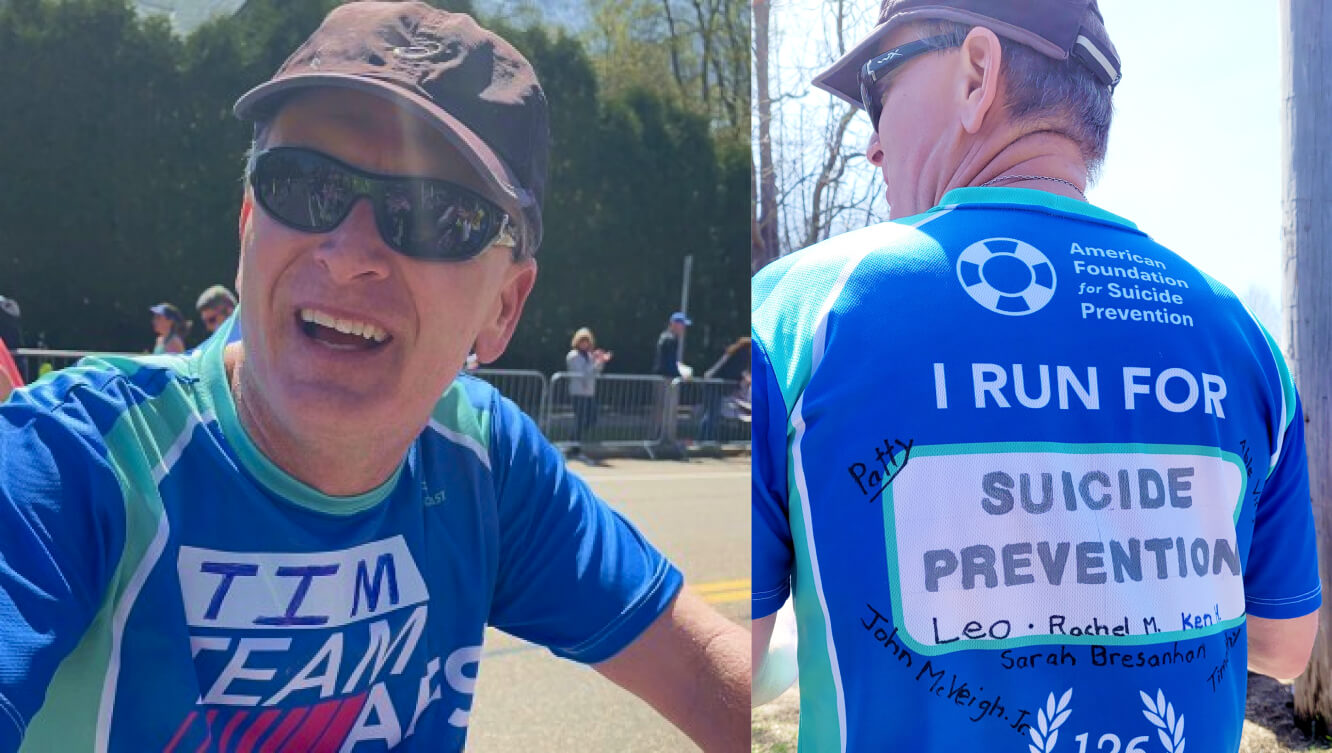Volunteer SpotlightTimothy IrvingConnecticut, Maine, Maryland, Massachusetts, New Hampshire, and Vermont Chapters

Timothy Irving is the deputy director, directorate of construction at the U.S. Department of Labor, Occupational Safety and Health Administration (OSHA), which ensures safe and healthful working conditions for America's workers. His relationship with AFSP began in 2008, after meeting Melanie Varady, vice president of AFSP’s Northeastern Division, when their daughters were competitive gymnastics teammates. His volunteer efforts have utilized his event planning experience to assist with the coordination of Out of the Darkness Walks in Massachusetts, hosting Talk Save Lives in the NE Region, and drawing on his love of running by representing Team AFSP in the Boston Marathon and other events.
More recently, Timothy was a driving force in creating an alliance between OSHA and AFSP, initially through AFSP’s Northeastern Division, and now on a national scale, to bring suicide prevention to the workplace.
“OSHA might not be the first federal agency people think of when they hear about suicide, but the agency’s mission is to prevent work-related injuries, illnesses, and deaths. I was researching local fatal accident statistics for an outreach program related to preventing falls in construction, and I was astonished by what I found when reviewing the Massachusetts Department of Public Health’s 'Fatal Injuries at Work' report. I was looking for statistics supporting the fact that falls were the leading cause of workplace fatalities — but I quickly realized that suicide was the number one cause of occupational fatalities in the state of Massachusetts at the time. As a safety professional, I was disappointed in myself for not knowing suicide was even on the list, let alone the leading cause of workplace deaths. I reached out to my colleagues and was surprised that none of them were aware of this fact, either.
Whether a suicide occurs at the facility or outside of the workplace, the death of a worker – or a friend or family member of a worker – has an enormous impact on an organization’s operations, not to mention the profound impact it has on a community.
I know in my heart that these efforts have made a difference by protecting workers and saving lives.
My first action in forging the official relationship between AFSP and OSHA was to schedule a Talk Saves Lives session at the OSHA Boston Regional Office for safety leaders in the Boston construction industry. This led to additional trainings being requested by the group. The movement grew exponentially, leading to more than a dozen additional trainings at events and conferences around New England. The OSHA/AFSP relationship was formalized in 2018 by signing a Regional Alliance for New England. Since then, additional OSHA regions have provided Talk Saves Lives sessions, which now has a workplace module.
In September 2022, OSHA and AFSP signed a National Alliance, allowing us to work together to promote workplace mental health and suicide prevention awareness — reducing the stigma of mental health concerns and suicide, and normalizing help-seeking and discussions about mental health concerns in the workplace. We want to provide employers, workers, and the public with information, guidance, and access to training resources that promote workplace mental health and suicide prevention. This includes increased workplace understanding about the rights of workers and the responsibilities of employers under the Occupational Safety and Health (OSH) Act, which assures safe and healthful working conditions for employees. As part of the department’s Mental Health at Work Initiative, OSHA is committed to advancing mental health resources and fostering supportive workplaces that prioritize mental health.
It's amazing how far we’ve come in the last seven years. I’m elated at the headway we’ve made together. As an Agency, through our collaboration with AFSP, we have made real progress and now provide tangible resources which offer guidance to organizations and help them understand what they can do in the workplace to prevent suicide and support those affected by suicide. I know in my heart that these efforts have made a difference by protecting workers and saving lives.”
